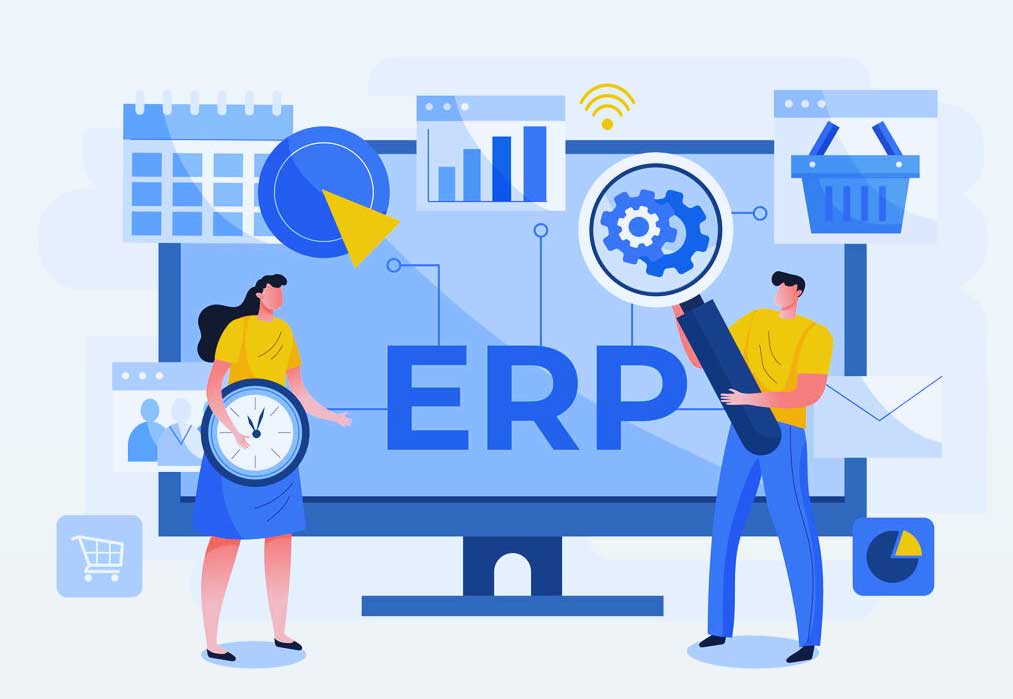Navigating Excellence: Unveiling the Dynamics of ERP Programs
In the realm of business management, Enterprise Resource Planning (ERP) programs stand as comprehensive solutions designed to streamline and integrate various business processes. These programs play a pivotal role in enhancing operational efficiency, facilitating data-driven decision-making, and fostering a cohesive organizational structure. In this article, we delve into the essence of ERP programs, exploring their key functionalities, benefits, and the transformative impact they bring to businesses across diverse industries.

Demystifying ERP Programs
1. Holistic Integration: At the heart of ERP programs is the concept of holistic integration. These programs consolidate diverse business functions, including finance, human resources, inventory management, and customer relationship management, into a unified platform. This integration eliminates data silos and enhances cross-functional collaboration.
2. Centralized Data Management: ERP programs prioritize centralized data management. Instead of disparate data sources and manual record-keeping, these programs maintain a single, centralized database. This ensures data accuracy, consistency, and provides real-time insights into various facets of the business.
3. Streamlining Business Processes: ERP programs are engineered to streamline complex business processes. From order processing and production planning to inventory control and financial management, these programs automate routine tasks, reducing manual errors, and improving overall operational efficiency.
Key Functionalities of ERP Programs
4. Financial Management: ERP programs include robust financial management modules. These cover essential functions such as general ledger, accounts payable and receivable, budgeting, and financial reporting. This comprehensive approach ensures accurate financial tracking and compliance.
5. Human Resources (HR) Management: The HR management functionalities within ERP programs simplify workforce management. From employee data management and payroll processing to benefits administration, these modules contribute to efficient HR processes and compliance with regulatory requirements.
6. Inventory and Supply Chain Management: Efficient inventory and supply chain management are critical for businesses. ERP programs offer features that optimize inventory levels, track supply chain activities, and ensure timely order fulfillment. This contributes to improved supply chain visibility and responsiveness.
Advantages of ERP Programs
7. Improved Data Accuracy: By centralizing data and automating processes, ERP programs significantly improve data accuracy. This reduces the risk of errors associated with manual data entry and ensures that decision-makers have access to reliable information.
8. Enhanced Decision-Making: Access to real-time data and comprehensive reports empowers decision-makers within organizations. ERP programs provide insights into key performance indicators, facilitating data-driven decision-making for strategic planning and operational optimization.
9. Scalability: ERP programs are designed to scale alongside business growth. As companies expand, these programs can accommodate increased data volumes, users, and additional functionalities without major disruptions to operations.
Considerations When Implementing ERP Programs
10. Alignment with Business Goals: Successful implementation of ERP programs requires alignment with business goals. Organizations should define clear objectives and choose ERP solutions that meet their specific needs, ensuring that the program becomes an enabler for business success.
11. User Training and Adoption: User training is crucial for successful ERP program implementation. Ensuring that employees are adequately trained to use the system promotes user adoption and maximizes the benefits of the ERP investment.
12. Vendor Selection: Choosing the right ERP vendor is a critical decision. Factors such as vendor reputation, support services, and the vendor’s commitment to updates and security should be carefully evaluated to ensure a successful and enduring partnership.
The Future of ERP Programs
As technology continues to advance, the future of ERP programs holds exciting prospects. Emerging trends such as artificial intelligence, machine learning, and increased emphasis on user experience are likely to shape the next generation of ERP solutions, making them even more sophisticated and responsive to the evolving needs of businesses.
In Conclusion: Pioneering Operational Excellence
In conclusion, ERP programs represent a pioneering force in the realm of business management. Their holistic integration, streamlined processes, and data-driven approach position them as strategic tools for organizations seeking operational excellence. As businesses continue to navigate the complexities of the modern landscape, the adoption of ERP programs becomes not just a choice but a fundamental step toward harnessing efficiency, driving innovation, and thriving in an ever-evolving business environment.